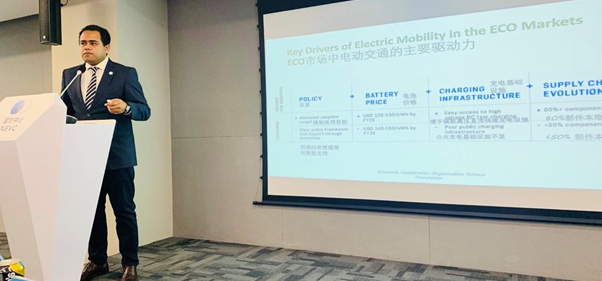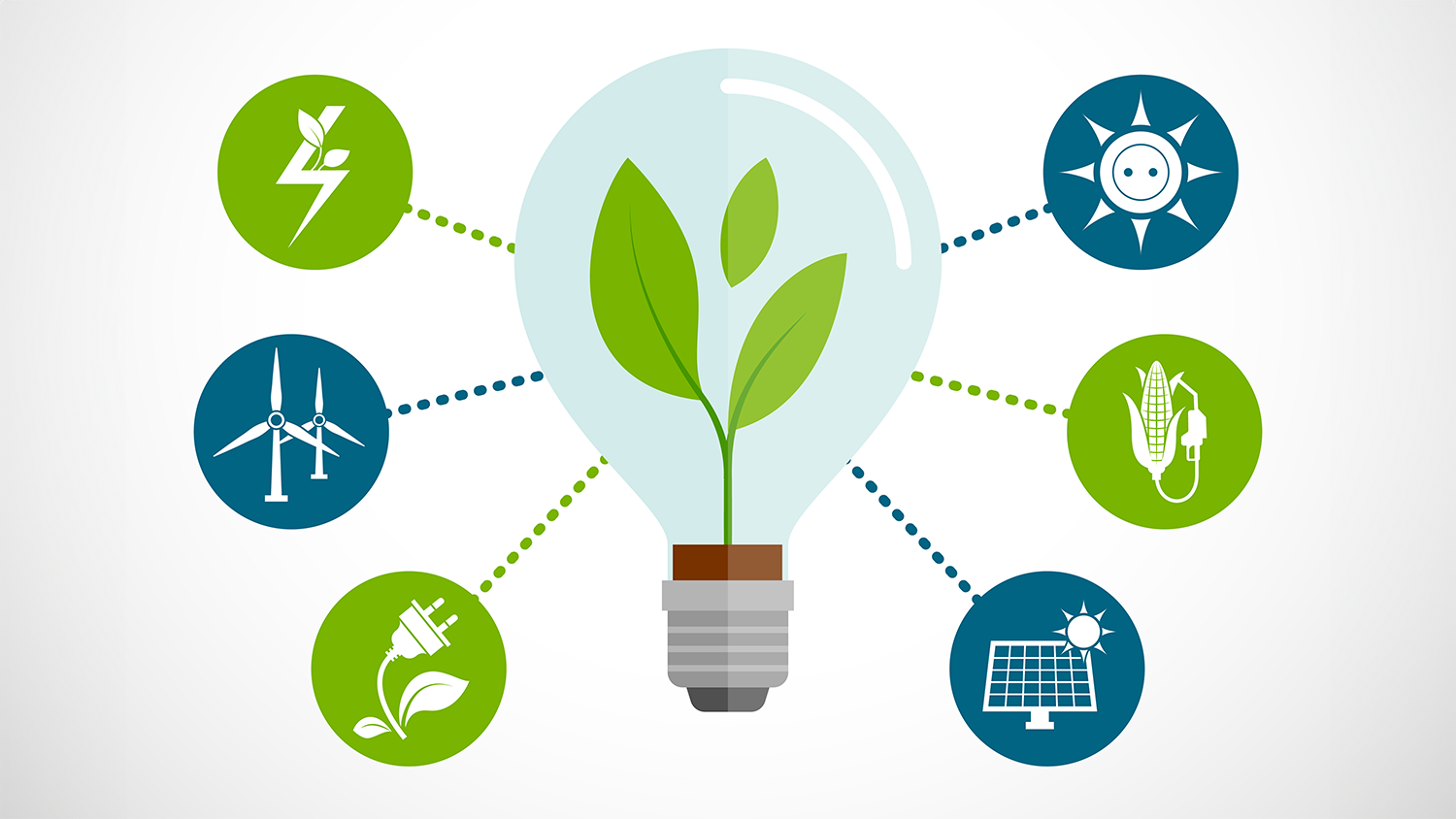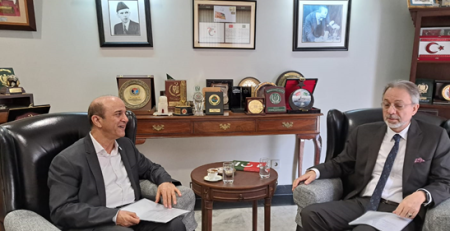ECOSF hosted a comprehensive Training Workshop on Scaling Up Electric Mobility in the ECO Member Countries in Partnership with NEVC China
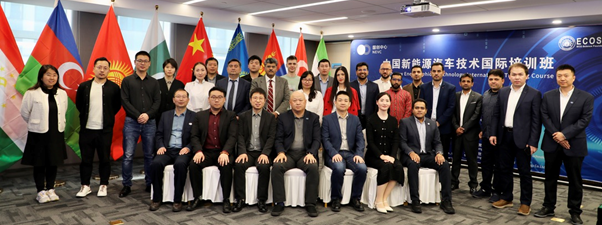
The National New Energy Vehicle Technology Innovation Center (NEVC) of China in collaboration with the Economic Cooperation Organization Science Foundation (ECOSF), Pakistan successfully held the two-week training workshop on China New Energy Vehicle Technology, held from April 15 to April 28, 2024. As part of the concluding ceremony of the Training Workshop, NEVC and ECOSF organized a Joint Regional Forum on Electric Mobility on April 27.

Hosted by the Department of International Cooperation, Ministry of Science and Technology of the People’s Republic of China, the Forum was organized under the theme “Leverage China’s technological prowess for advancing electric mobility in the ECO Member Countries.“
The Forum was supported by key collaborators including Beijing International Science and Technology Exchange Center (BISTEC), Shanghai Launch Automotive Technology Co., Ltd., Beijing Huaxia Hanhai Education and Technology Co., Ltd., JaevRI (Changzhou) Alternative Energy Vehicle Technology Co., Ltd., and Beijing Lixing Shiyuan Education and Technology Co. Ltd.
The two-week training workshop focused on enhancing the technological and policy-making capacities of ECO Member Countries in various aspects of Electric Mobility technology and solutions. Over 15 participants from ECO Member Countries, including Iran, Pakistan, Turkey, Azerbaijan, Kazakhstan, Tajikistan, and other countries contributed to the training workshop. The training workshop was led by leading Chinese experts in the field of electric vehicles (EVs) who delivered insightful sessions and lectures on various important topics such as electric vehicle policies, drivetrain technologies, battery technologies, smart manufacturing, autonomous driving, and charging and battery swapping infrastructure etc.
Participants also gained valuable insights through industry visits to Launch Design (a global leader in turnkey solutions for electric vehicles), Baidu Autonomous Driving Center, Great Wall Motors Manufacturing Facility, and an Energy Hub’s battery swapping station.
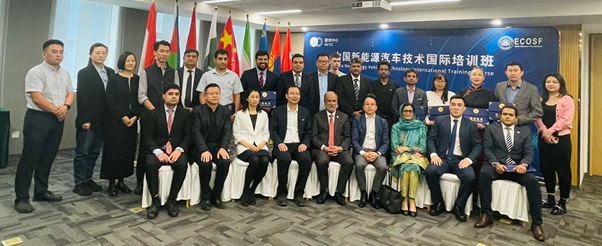
Mr. Zheng Guangzhou, Vice General Manager of NEVC emphasized China’s strengths in providing competitive and efficient EV solutions. Mr. Guangzhou assured that the NEVC is committed to both advancing the technical and policymaking capacity of ECO member countries and establishing strong linkages between Chinese OEMs and local counterparts in the ECO Member Countries.
Earlier during the Forum, Mr. Khalil Raza, Programme Manager Energy and Climate at the ECOSF, presented a comprehensive Electric Mobility Market Analysis for ECO Member Countries and delivered tailored approaches for achieving electric mobility targets in the region. Mr. Raza presented the ECO Market analysis with following key outcomes and wayforward:
Turkey: Ideal Destination for Joint Ventures for production of mid-range and premium electric vehicles.
- Vibrant Market: Access to nearly 1 billion consumers in EU and FTA countries.
- Strong Presence: Global OEMs, skilled labor, and favorable policy framework for electric mobility.
- Opportunity: Major Chinese EV OEMs can establish joint ventures for local production, leveraging Turkey’s market potential.
Pakistan – Focus on Electric Motorbikes and Compact EVs
- Large Consumer Base: Ideal for motorbikes and affordable compact EVs in passenger vehicle segments.
- Starting Point: Battery assembling for electric bikes as an initial step, leading to assembly and production of Electric Bikes and compact EVs for passenger vehicle segment.
Iran: Overcoming Challenges for EV Adoption
- Automotive Industry Contribution: Significant, accounting for 10% of GDP with annual production exceeding 1.6 million vehicles.
- Challenges: Subsidized gasoline prices hinder EV adoption, limited charging infrastructure.
- Opportunity with China: Leveraging China’s supply chain expertise for traditional gasoline-powered vehicles and transitioning to EVs.
Uzbekistan and Kazakhstan – Central Asia’s EV Production Hubs
- Uzbekistan and Kazakhstan’s central location, access to skilled labour, raw materials, and manufacturing expertise makes them ideal production hubs for EVs in Central Asia.
- Establish robust linkages, joint venture and investments, with suitable incentives and benefits for Chinese OEMs to build production facilities in Uzbekistan and Kazakhstan.
- Forge strategic partnerships with Chinese OEMs for technology transfer and market access.
- High potential development of EV component manufacturing industries to support production in Uzbekistan and Kazakhstan.
- Export Hubs: Positioning Uzbekistan and Kazakhstan as key production centres for EVs and export hubs to neighbouring countries; Azerbaijan, Tajikistan, Kyrgyz Republic and Central Asian states.
- Strengthen regional supply chains and export potential to neighbouring countries, fostering economic growth and sustainability in the region.
